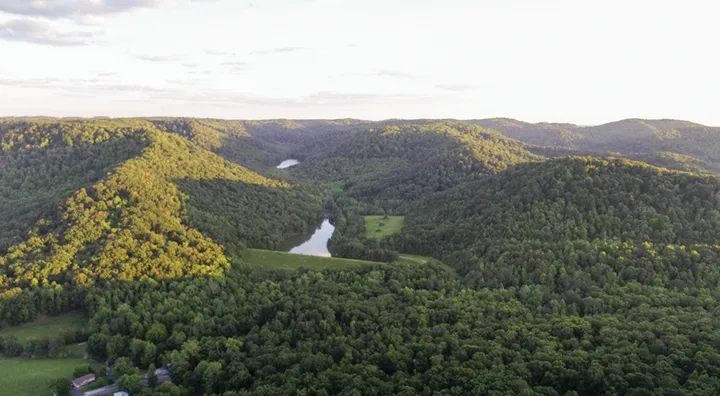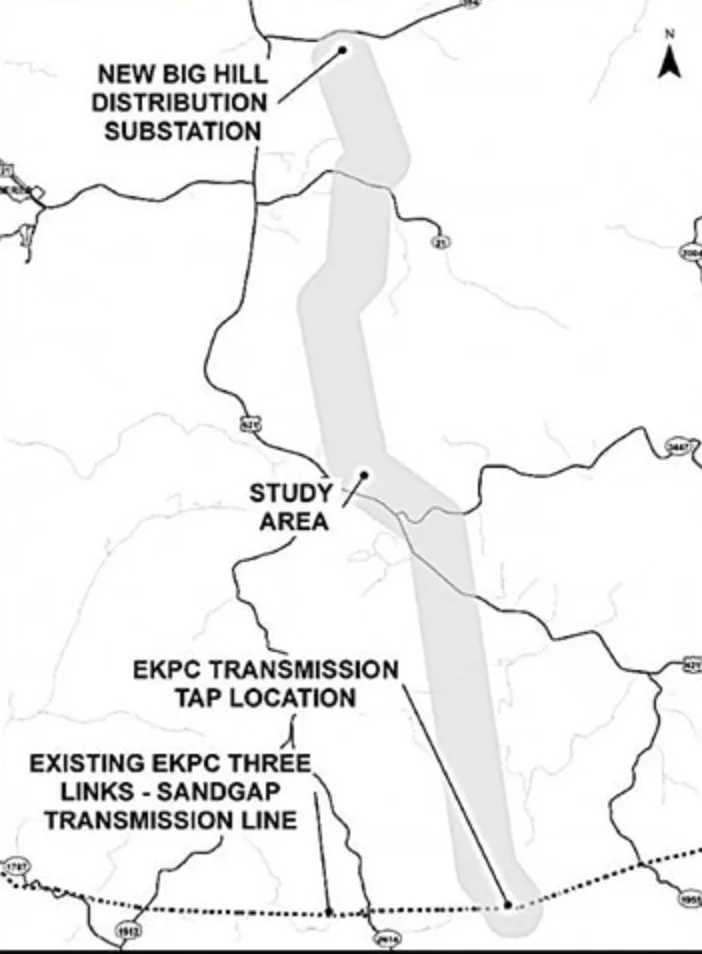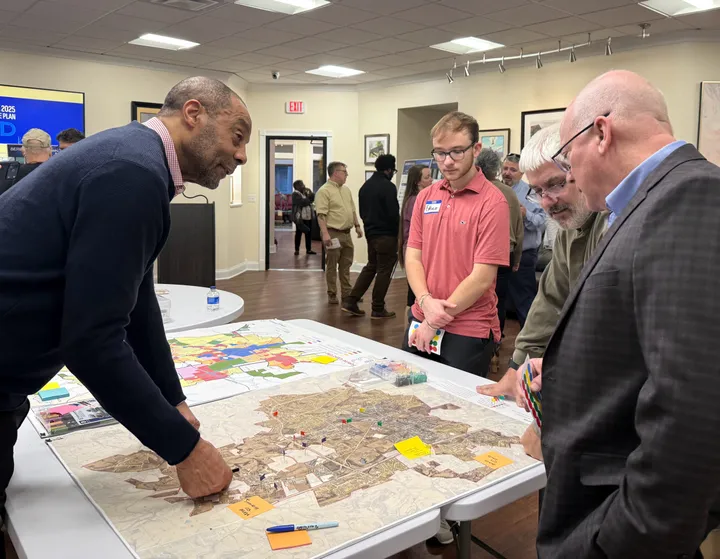
The battle between a regional power cooperative and Berea College over a land dispute looks to be headed for court on September 18th.
The latest in the legal maneuvering around the Big Hill Line that began over the summer is East Kentucky Power Cooperative's request of the Madison County Circuit Court to expedite a hearing against the College, and that it be allowed to keep its documentation regarding the line, protected from view by the public.
Purpose of line in dispute
EKPC wants about a mile of the College's forest in order to build a 69 kilovolt transmission line through it. The College, which now faces an eminent domain complaint filed against it by EKPC, says the utility has not been forthcoming about the true need for the line, nor its alternatives.
At 4,100 meter connections, EKPC's Hickory Plains substation, just north of Red Lick, is the co-op's busiest in the region, according to an EKPC spokesperson. The co-op has argued that the system is strained, and that to provide reliable service to residential co-op members in southern Madison County region, it needs to off-load 1,500 meters from Hickory Plains to a new transmission line and substation to be built in Red Lick.
That is about the extent of EKPC's public explanation for the line, a project which was first announced in the fall of 2023. The line does not meet the threshold for the state's utilities watchdog, the Public Service Commission, to pass judgment upon. Transmission line projects that are 138 kilovolts and over are all the PSC is tasked by the state's General Assembly to oversee. The Big Hill Line is exactly half that amount.
College's fire power
Although local opposition to the line is not total, as The Edge has reported, the majority opinion is against it, and includes several residents who, like the College, have also had to choose between either negotiating with or being sued by the co-op for the right to use their property. At least half of affected property owners have already settled with the co-op.
None of the private property owners brought as much clout and resources to the negotiating table as the College has, however. The College first attempted to leverage its position at the outset of EKPC's public announcement that it would be building the line by listing all that would be at stake if the co-op went ahead with its plans.
In a letter addressed to the late Biden administration era US Department of Agriculture, the federal agency in charge of helping to fund rural utility projects, the College wrote that its wooded holding encompasses 17 miles of hiking trails that are visited more than 100,000 times annually, and which include the Pinnacles–voted by Outside Magazine as Kentucky's best hike. The transmission line, it argued, would mar the Pinnacles' eastern viewshed.
The College also claimed that Owsley Fork and three other reservoirs in the Forest containing about one billion gallons of fresh water serving more than 40,000 customers, including all of Berea, the College, and its students, were at stake, as well as the College’s pioneering restoration efforts for the American Chestnut and Shortleaf Pine, among other tree species.
The College concluded its eight-page letter with a suggestion.
“EKPC was recently approved by the Kentucky Public Service Commission to rebuild an existing 69kV line and a new 138 kV line utilizing the existing right of way for the 69kV line,” the letter read. “This new 138 kV line is in the vicinity of the proposed Big Hill Line and potentially could be extended to the Hickory Hill substation utilizing existing right of way, without disturbing the Berea Forest or other virgin territory proposed for construction.”
In the letter, the College also offered to work together with the utility to find a solution. The utility responded with a law suit.
Confidential and quick
As reported, there has now been multiple motions filed by both parties since June when EKPC sued for the right to build on College land per the state's eminent domain statute which describes how private property deemed necessary for utilities upgrades and other public good projects, can be taken against the property owner's will. Eminent domain is Constitutional provided the property owner is compensated at fair market value.
The latest legal wrangling between the College and the co-op has multiple parts, the first being EKPC's request of the Court to allow it to keep its responses to the College's motion for discovery hidden from public view, in order, it claimed, to remain competitive and to avoid risking harm to its infrastructure because of what the co-op claimed to be known "physical threats" to lines and substations.
The College, meanwhile, claimed this was EKPC making "overly broad" demands that the Court should not permit.
"EKPC has a monopoly on electric service in its service territory. It has no competitors and therefore has no interest in preserving 'trade secrets', or infrastructure location and capacity," the College's response read. "The ultimate question before the Court is whether this transmission line and substation serve a public need. The information sought in discovery by the College is critical to making this determination."
The College went on to assert part of its core argument. Namely, that the utility does not have a valid reason to take College land, "since the purpose of the transmission line sought to be built by [EKPC] over [the College's] property can be accomplished with less intrusive alternatives and without such taking."
The College also asked the Court to consider that much of the information it seeks from EKPC is the same information the utility would have to share publicly when making a case to the PSC for transmission line upgrades or rate increases.
The power co-op meanwhile, also filed a motion to expedite its day in court for its eminent domain claim. The College responded that it, "respectfully requests the Court to enter an appropriate scheduling order but deny [EKPC's] motion for an expedited hearing."
The Court will hear EKPC's case on Thursday, September 18th. The judge who will hear the case is Madison County Circuit Court Judge Kristin Clouse.
This story has been updated to correct the amount of land EKPC seeks to take from Berea College, and to add that a Court date of September 18th, has been set.
--Whitney McKnight
Something worth clicking open. The Edge gives you in-depth reporting on all things Berea, and relevant Madison County news. Become a paid supporter of this invaluable local resource.



